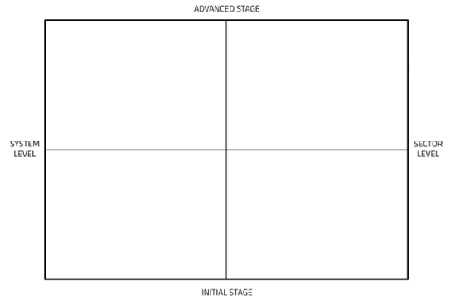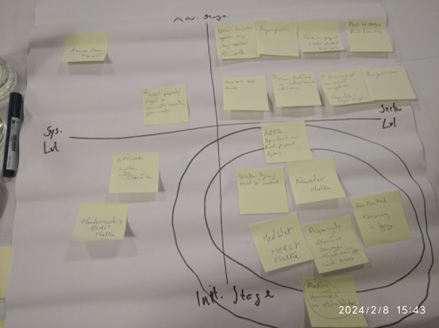
Register with Plumtri!
Register on plumtri as an Individual or as an Organisation to gain access to all of its useful features and remain updated on the latest R&I news, events and funding opportunities.
-
 Welcome to plumtriA platform for Research & Innovation
Welcome to plumtriA platform for Research & Innovation -
 Looking for Funding?Check out the current open calls
Looking for Funding?Check out the current open calls -
 Register today to start receiving our monthly newsletter
Register today to start receiving our monthly newsletter -
 Looking to partner up?Search our list of registered profiles
Looking to partner up?Search our list of registered profiles -
 You have questions on a particular funding programme?
You have questions on a particular funding programme?
MCAST leads Workshop on coping with droughts in the agricultural sector

The Malta College of Arts, Science and Technology (MCAST) organised a workshop to exchange viewpoints and come up with novel solutions to cope with droughts in Malta’s agricultural sector. As the farming community around the Mediterranean Region is experiencing the impacts of climate change, characterized by reduced rainfall, higher temperatures leading to increased evapotranspiration, as well as a more frequent occurrence of prolonged droughts, the importance of tackling this challenge has become all the more urgent. The event brought together stakeholders in the agricultural and water sector, including local farmers and researchers also from Jordan and Turkey.
The workshop enabled the collection of insights through a methodology called system mapping, devised by the EIT Climate KIC. EIT Climate-KIC is a Knowledge and Innovation Community who strives to a transition towards a more climate-resilient Europe. The organisation is supported by the European Institute of Innovation and Technology. System mapping is an innovative qualitative research methodology focused on a visual and participatory mapping process that brings together stakeholders relevant to a particular problem. Data is generated through open round-table discussions and is mapped using visual tools.
In a first step, the participants were invited to use coloured, self-adhesive stickers to jot down the acronym or short title of a planned, ongoing or past project that dealt with the topic at hand, i.e. coping with droughts in Malta’s agricultural sector. The self-adhesive stickers containing information were posted on the canvas, available at each table (Refer to Fig.1a and 1b). The canvas, the main visual tool used in system mapping, is divided in four quadrants. The sticky notes had to be pegged to the respective quadrant, based on 2 variables – stage of project completion and whether the project being proposed was of a sector level or a system level.
Figure 1a (above): The empty canvas
Figure 1b: A graphical representation of the canvas
In a second step, the participants were asked to identify and write on self-adhesive stickers, the primary stakeholders who would be involved in the project, noting those who would welcome the project, or who would hinder it. These were posted around each respective project on the canvas.
In the next step participants were asked to discuss and write on the self-adhesive stickers possible barriers to these projects and to think about solutions to change these barriers into opportunities. These were posted around each project on the canvas. In the final step potential synergies between the projects were identified.
The workshop was organized by MCAST in collaboration with Integrated Resources Management Company Ltd. (IRMCo) an environmental research company based in Malta, and the Dokuz Eylul University Industrial Application and Research Center (DEU), based in Izmir, Turkey. It took place at the Esplora Science Centre on 8 February 2024.
The UNIMED project is financed by the Malta Council for Science and Technology through the MCST-TÜBİTAK Joint Call 2022 for R&I Proposals. Its aim is to develop a unified, indicator-based, framework to better assess, adapt and ultimately cope with agricultural droughts under Mediterranean climate change conditions. The framework consisting of a Survivability-of-Droughts Index will be derived from the quantification of four underlying indices - perception, vulnerability, adaptability and recoverability. Each of these indices will draw on a mutually exclusive set of relevant economic, social and environmental indicators, ensuring that the assessment framework is aligned with the Water-Energy-Food-Ecosystem (WEFE) Nexus approach.

